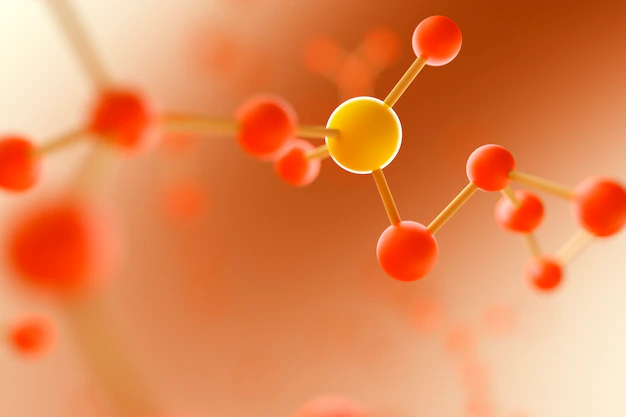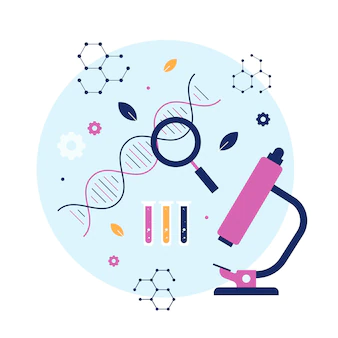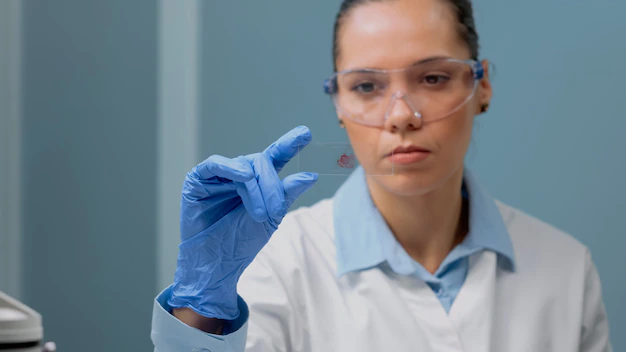Complete guide on Does Urine Holds DNA or not…
Hello Guys, Welcome to this intriguing exploration into the world of urine and its connections to DNA.
Have you ever wonder by depths of scientific research to answer the question: Does Urine Holds DNA?
Urine generally dismissed as a waste product, has gained some valuable attention due to its potential to contain valuable genetic material.
DNA, which is the blueprint of our life, can reveal crucial information about our health and ancestry.
Understanding about urine holds DNA and exploring its implications opens up new avenues for forensic investigations, medical research and even personalized healthcare.
Does Urine Holds DNA or not…
》What’s DNA?
DNA or Deoxyribonucleic acid is a remarkable molecule that serves as the fundamental building block of life as we know it.
The discovery of the structure and function of DNA by James Watson and Francis Crick in 1953 revolutionized our understanding of genetics and laid the foundation for modern molecular biology.
The role of DNA is Carries hereditary information.
The structure and composition of the DNA have the key to our genetic information and play a crucial role in the functioning and development of all living organisms.
The inner part of DNA is a complex, double-stranded helical structure, that resembles a twisted ladder or a spiral staircase.
This complete, structure of the DNA consists of nucleotides, which are the building blocks of the DNA.
Each of the nucleotides comprises a sugar molecule i.e., Deoxyribose, a phosphate group and one of four nitrogenous bases i.e., adenine, cytosine, guanine and thymine.
The beauty of DNA stays in its ability to encode information about the Body.
The sequence of the nitrogenous bases along DNA molecules forms a genetic code that carries instructions for the synthesis of proteins, which are essential for the structure and function of cells.
In conclusion, DNA represents the exquisite
The complexity of life itself. Its unique structure and genetic information hold pave the way for exploring the intricacies of inheritance, evolution and the diverse biological processes that shape our world.

》The Science Behind Urine
Urine, Often overlooked as a mere waste product, but it holds interesting secrets
Understanding The science behind urine involves delving into its composition and the factors that influence its unique characteristics within the human body.
Urine is primarily composed of water, accounting for approximately 95% of the water of its whole volume.
Other substance of urine consists of Dissolved substances, including metabolic waste, electrolytes, hormones and various organic and inorganic components.
The Precious Part of the body called the kidney, plays a vital role in urine formation.
The kidney acts as a filtration unit, selectively removing waste products and excess substances from the bloodstream.
The filtration process occurs throughout a network of microscopic structures called ‘nephrons’, and essential molecules are reabsorbed, while waste products and excessive substances are diverted into the urine.
Different diets and medication intake also impact urine. Certain foods like beetroot can give a different colour and odour to urine.
Same like, medications also can alter the colour and odour of the urine.
Other than, Diet and medication, various health conditions can manifest through changes in urine composition. Like, urinary tract infections, kidney disease and metabolic disorders can cause abnormalities in urine constituents.
By analyzing these abnormalities doctors can gain valuable insights into a health status.
By understanding the science behind urine, we can get insights into our health, explore diagnostic possibilities, and appreciate the wonders of the human body filtration units.

》DNA in Urine: Exploring Possibilities of Does Urine holds DNA
Is there DNA presence in Urine?
Ans. Is Yes…
DNA in urine presents fascinating possibilities for scientific exploration.
Let’s get a closer look at where DNA in urine comes from, how it gets there and how stable it is.
The DNA in the urine mainly comes from the cells that are shed from the urinary tract system.
These cells can come from the different parts of the body such as bladders, urethra, and even kidneys.
There are not only cells that contribute to the DNA in urine but there is something called Extracellular DNA, which is DNA that is not inside the cells. This DNA can come from the cells that have broken apart or have been released by the body.
This DNA can be a DNA that is circulating in the bloodstream or DNA from cells in the urinary tract.
The stability of the DNA is a very important factor to consider.
Urine is a mixture of different chemicals, and enzymes which can easily affect the DNA.
Things like PH levels, temperature, exposure to enzymes and the presence of bacteria or other substances can influence the Stability of DNA.
However, With proper storage conditions, DNA can stay relatively stable in urine samples, which is allow us to further analysis.
DNA in the urine can easily degrade if we don’t store and handle samples in proper storage conditions. Factors like temperature, freezing and thawing the samples repeatedly or keeping them stored for a long time can cause the to DNA break into smaller pieces and be degraded.
Several methods are used to study urine DNA and identify specific genetic sequences or variations.
》Method For Detection of DNA Urine Samples.
Detecting DNA in urine involves a range of methods that allow our scientists to extract and analyze the genetic materials presented in urine samples.
These techniques are essential for harnessing the potential for urine DNA in various fields of research and diagnostics.
Let’s Take a closer look at some of these methods and the challenges they may present.
1. PCR – Polymerase Chain Reaction
2. OEM – Organic Extraction Method
1. PCR – Polymerase Chain Reaction
It plays a pivotal role in DNA amplification.
It allows scientists to make multiple copies of a specific DNA sequence, making it easier to study and analyze.
PCR helps in detecting and identifying genetic variations that may be relevant to forensic investigations or medical research.
To extract DNA from urine samples, scientists imply different methods based on the specific goal of their study.
A common approach is the use of DNA Extraction kits, which provide specialized reagents and protocols for efficient DNA recovery.
2. OEM – Organic Extraction Method
This method used different types of solutions and solvents to separate DNA from other components.
This involves adding an organic solvent to the urine samples that can precipitate DNA.
Then, DNA can be collected through centrifugation and further processed for analysis.
Once, DNA is extracted it can be subjected to various analytical techniques. Gel electrophoresis for example allows scientists to visualize and determine the size of DNA fragments.
It involves running DNA through a GEL matrix under an electric field causing DNA fragments to migrate based on their size.
》Application of DNA
Different types of forensic applications of DNA are given below.
1. Unique Genetic Evidence:
Urine DNA analysis has emerged as a valuable tool in forensic investigations. Urine samples collected from crime scenes or relevant sources contain genetic material that can provide unique evidence in criminal cases.
2. DNA profiling:
DNA profiling from urine samples enables forensic scientists to create a unique genetic profile of an individual.
By comparing DNA profiles found in the urine of suspected individuals, investigators can identify suspected persons and link them to specific crime scenes.
3. Privacy concerns:
Urine DNA analysis involves sensitive genetic information. Legal framework and consent protocol must be in place to protect individual’s privacy rights and prevent misuse of genetic information obtained from urine samples.
4. Resolution of Criminal cases:
A urine DNA sample can help solve criminal cases by providing important evidence and identifying suspected persons.

We hope that you have find relevant answers pf does urine holds DNA? And this is all about this mystery.
》Conclusion
In last, The presence of DNA in urine holds great potential for scientific research and various applications.
Urine contains genetic materials from different parts and sheds cells of the body and Extracellular DNA, which provides valuable insights into human biology and health.
While our scientists may face so many challenges in terms of stability and degradation of DNA, proper handling and storage techniques can preserve the DNA from the analysis.
Different methods that are used to extract and analyze DNA in urine samples play a vital role in urine DNA sample analysis and gaining genetic information.
As research in this field continuously evolves, urine DNA analysis has the potential to revolutionise forensic investigations, medical diagnostics and our understanding of human biology.
By exploring the possibilities of DNA in urine samples, we can unlock valuable insights that can diversify fields and contribute to the advancement of science and society.
Subscribe to our blog post for further updates and the latest blog posts related to your Physical health, Mental health and Personal development.
We hope that you are deriving numerous benefits from our blog.
Be healthy!
Be happy!
Thank you…
Visit again…
••••••••••》Foraj_ Health_Creation《••••••••••••
